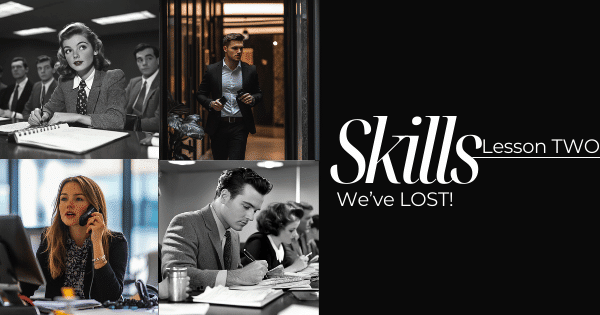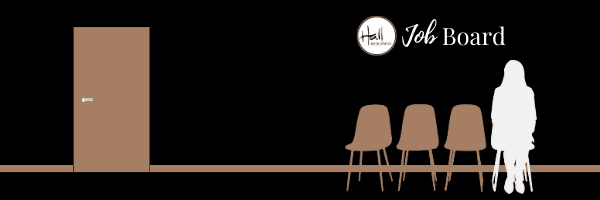Skills We’ve Lost – Lesson Two

Effective Note-Taking: Enhancing Your Organisational Skills
In an era dominated by digital communication and information overload, effective note-taking remains a vital skill for staying organised, retaining information, and enhancing productivity. Whether you’re in a meeting, attending a lecture, or brainstorming ideas, the ability to take clear and concise notes can significantly impact your efficiency and success in the workplace. In this blog post, we will delve into the art of effective note-taking, discuss various techniques, and explore how this skill can benefit you in real-world scenarios.
The Importance of Effective Note-Taking
- Retention of Information: Taking notes helps reinforce the information being presented, making it easier to remember and understand later.
- Organisation: Well-organised notes allow you to quickly locate important information when you need it.
- Focus and Engagement: Actively taking notes keeps you engaged with the material, improving concentration and understanding.
- Reference and Review: Notes serve as a valuable reference for future use, aiding in review and preparation for tasks or exams.
Techniques for Effective Note-Taking
- The Outline Method: This involves structuring your notes in a hierarchical format, using headings and subheadings to organise information.
- Pros: Easy to follow and review.
- Cons: Requires quick thinking to organise information on the fly.
- The Cornell Method: Divide your page into three sections: a narrow left-hand column for cues, a wider right-hand column for notes, and a summary section at the bottom.
- Pros: Encourages active engagement and review.
- Cons: May require additional time to set up.
- The Mapping Method: Create a visual representation of the information using diagrams and arrows to show relationships between concepts.
- Pros: Great for visual learners and complex information.
- Cons: Can be time-consuming and may become cluttered.
- The Charting Method: Organise information into columns and rows, similar to a table.
- Pros: Ideal for comparing and contrasting information.
- Cons: Less effective for unstructured information.
- The Sentence Method: Write every new thought, fact, or topic on a separate line, numbering each line.
- Pros: Simple and easy to use.
- Cons: Can be disorganised and difficult to review.
Practical Test: Note-Taking Exercise
To improve your note-taking skills, try the following exercise:
- Select a Method: Choose one of the note-taking techniques mentioned above.
- Watch a Lecture or Presentation: Find a video on a topic of interest.
- Take Notes: Use your chosen method to take notes during the video.
- Review and Reflect: After the video, review your notes. Assess what worked well and what could be improved.
Real-Life Modern Workplace Examples
Effective note-taking is crucial in various professional settings:
- Meetings: Capture key points, decisions, and action items during meetings. This ensures that you have a clear record of what was discussed and agreed upon.
- Training Sessions: Taking notes during training sessions helps you remember important details and procedures, making it easier to apply what you’ve learned.
- Project Planning: Use note-taking to brainstorm ideas, outline project plans, and keep track of progress.
- Client Interactions: Document client needs, preferences, and feedback to provide better service and follow-up.
Benefits of Effective Note-Taking
- Enhanced Productivity: By keeping your notes organised and easily accessible, you can quickly reference important information, saving time and effort.
- Improved Communication: Clear notes can be shared with colleagues, ensuring everyone is on the same page and reducing misunderstandings.
- Better Decision-Making: Comprehensive notes provide a solid foundation for making informed decisions based on accurate and complete information.
Effective note-taking is a skill that can greatly enhance your organisational abilities and productivity in the workplace. By mastering various note-taking techniques and applying them in real-world scenarios, you can improve your focus, retention, and efficiency. Stay tuned for the next post in our series, where we will explore the importance of mastering the filing system to maintain a clutter-free and efficient workspace.
Enhance your note-taking skills today and see the positive impact it can have on your professional life!
